#Urdu magazine
Text
In English we say "Lost interest in everything" but in Urdu we say
"وہ سلسلے، وہ شوق، وہ نسبت نہیں رہی وہ دِل نہیں رہا، وہ طبیعت نہیں رہی"

#art and literature#poetry#books#love#poem#art#author#bookworm#writerscommunity#writing#urdu literature#english literature#literary magazine
6 notes
·
View notes
Text
Here is a heart-wrenching article on the unbearable loss of Indian Cinema's "Greatest Actress of All Time". This Madhuri issue featured Meena Kumari ji on the cover page and included excerpts from Meena ji's interviews published in Madhuri Magazine during her lifetime, as well as some of her shayaris. Meena ji was the first celebrity to be featured on the cover page of the first issue of Madhuri Magazine (formerly known as Suchitra).
Page 1: Cover page of the issue.
Page 2: A write-up by famous journalist of that era, Jitendra Jain.
Page 3: Excerpt from the first issue of Suchitra Magazine dated 31 Jan, 1964.
Page 4: Rare and heart-warming shayari ( poetry) by Meena ji.
Page 5: Another excerpt from article dated 10 Jan, 1969 accompanied with two of her most popular poetic works!
Circa
April 14, 1972
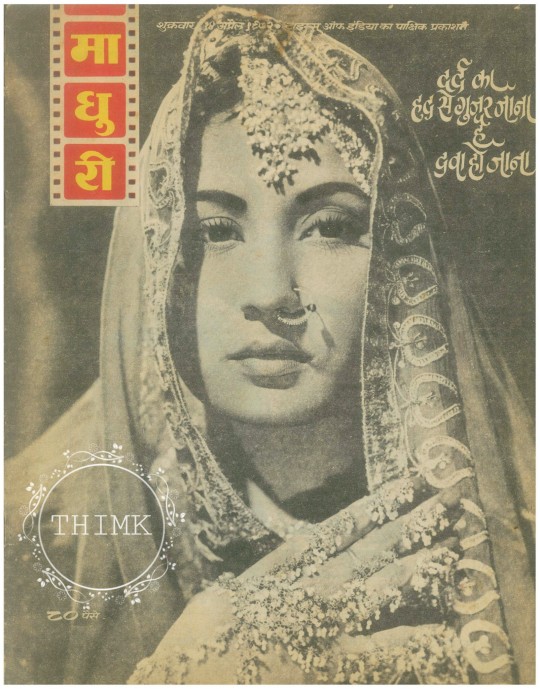

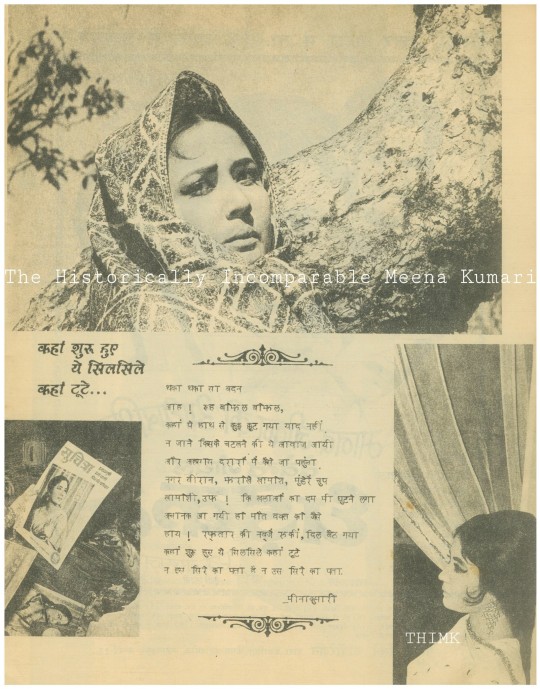

#meena kumari#death#tribute#old bollywood#golden era#old bollywood magazines#pakeezah#white#bollywood#aesthetic#indian films#trending#poetry#shayari#urdu shayari#urdu poetry
2 notes
·
View notes
Text


#priyasebastian#priyasebastianillustrator#priyasebastianillustration#priyasebastianillustrations#priyasebastianartist#dalerrowney#charcoal#mirza ghalib#portrait#Illustrations for an essay about the life of Urdu poet Mirza Ghalib for an essay in The Caravan magazine
1 note
·
View note
Text

(This will be constantly updated!)
About Me:
My name is Claire but you can call me Eri or Echo! I go by they/them pronouns (also found in my bio). I'm an 18 year old based in the United States.
Since I was young, art and writing have played a major role in my life. Hense, it has been a passion of mine that I'm endlessly turning back to. I'm currently studying creative writing, book publishing, and graphic design online; later hoping to study art history and print production. If I could, I'd indulge in every form of art that there is. I deeply enjoy helping other indie writers and creatives alike out in their journey, from ARC reading to showcasing their small business'!
To date, my poetry has been published in nearly 50 magazines and lit journals across the globe. I plan on releasing 4+ poetry/prose chapbooks, so keep an eye out for any updates regarding them! Moreover, I'm in the process of writing a few novels in an array of genres, sneak peaks of the stories may be shone!
You can find out more about me on my Website as well as on Instagram, Pinterest, and Spotify.
Languages I know: English (native), Vietnamese, Thai, Norwegian, Irish, Japanese, Hebrew, Czech, Indonesian, Hungarian, Hindi, Finnish, Ukrainian, Italian, Icelandic, Arabic, French, Malayalam, Swahili, and Swedish.
Languages learning: ASL, Korean, Mandarin, Urdu and Spanish.
Some of my favorite things: Rainy days, any kind of tea, flowers, exploring, the night sky, sunsets/sunrises, bookstores, cozy coffeeshops, nature walks, old books, sweaters, making art, creating playlists, volunteering, and learning about other cultures!
Fun Facts: I have undiagnosed ADHD, dyslexia, am queer identifying, gender non-conforming, and practice Shintō.
Blog:
Erie Autumn Skies will center around creativity and where I find inspiration. Expect postcard-poems, letters of prose, possible short stories, translated works of original poems, artwork, and so forth! I may post book reviews and travel photos now and then, too! This will be a writeblr blog and a personal blog! I am open to tag games, asks, etc. as long as they are writing related.
I'm open to DMs and collaborations if you ever want to chat or write together! Everything is okay to reblog. However, no resharing my work outside of Tumblr without my permission. Additionally, I'm open to requests for short poems as long as the prefered theme is included in your request and credit is given wherever the poem is shared.
WIPs:
Poetry Chapbooks
Book Recs:
Fiction Novels
Colorblock Interlude
Winterwood by Shea Ernshaw
The Littlest Tea Shop in Lower by J. Lofton
The Mirror Visitor Quartet by Christelle Dablos
Secrets & Stars by Alix Klingenberg
Sakura Park by Bailey Rae
And numerous others!
Pov My Pinterest Feed:
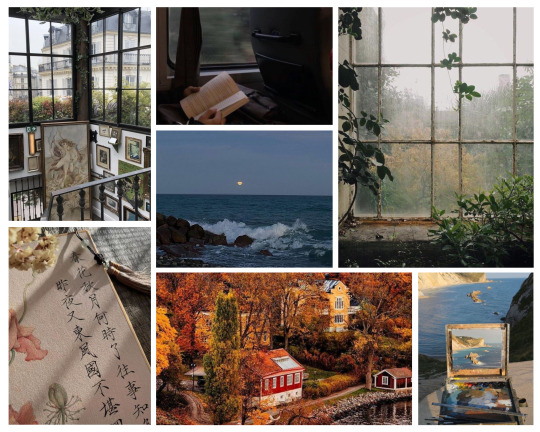
All original posts will be tagged under erieautumn! Tag games will be tagged under erieautumn tags. Asks are under erieautumn asks.
It was nice to meet you! Happy to have you along on my creative journey and hang around for as long as you'd like! 🌸
34 notes
·
View notes
Text
Is it good or cringe if I can this magazine Nushu. Especially if I can't really prounounce it.
Nushu is the name for the women's only language from Hunan. It literally means "woman's writing " in chinese. Designed by woman for women.
I also think it's interesting that Chinese and Arabic have similar sounds for woman. Nu or nushi in Chinese and nisa in old Quranic Arabic. Very similar sounds.
I wonder if there is a common root.
My other one would have been janani or zanani because what I've written about that word in the past of now that use to be the more common away of refereeing to women (it means life giver) because it was replaced in common language Urdu by a more vulgar way to refer to woman aurat which refers to genitals in Arabic.
11 notes
·
View notes
Note
You’re really cool! /gen
What languages are you learning?
Which ones do you want to become fluent in, in the future?
Where do you learn them?
What’s your favorite language?
Would you advise someone to learn Norwegian?
Do you have a language you’d never want to learn?
What’s the hardest thing for you when learning a new language?
How’s your day going?
ok first thank you for this epic ask. my answer is long so it's under the cut.
I'm currently primarily learning Russian. I am sorta learning Swahili, but I haven't come any far yet.
I'm also continuing to learn french, but I'm already pretty good at french so it's pretty much just reading stuff in french.
I'm sorta learning northern Sami or Sami languages (multiple), but I haven't gotten far.
I'm not sure which languages I want to be fluent in. I guess french, I'm definitely not on a C1 level yet but I know a lot so it's probably the easiest. But I just want to take things as they come a bit. Sami languages (probably northern Sami has most materials) are a candidate, because decolonization and stuff, plus it's a new language family to me which interests me a lot. Though I'll likely try one I know people who speak.
but for learning in general I am considering/currently learning:
- Arabic (maybe Egyptian)
- Swahili
- French
- Russian
- Chinese (probably mandarin)
- Urdu
- Sámi language (unsure which)
- Norwegian sign language
- international sign language
- Usamerican sign language (ASL)
- Thai
And of course I'm probably gonna update this list. (metaphorically speaking, not physically this list in this post)
Where I learn:
So for french I learned primarily in a classroom setting, but honestly that has left me with very weak like audio processing for french.
For Russian I've been using Duolingo which is pretty good, though as people talk about I don't understand the grammar so if I want to use it formally I'm probably gonna diversify. (not sure what I'll do yet)
For Swahili I'm using language transfer. But I struggle to motivate myself to do language transfer lessons. They're primarily audio based and I'm genuinely addicted to music so I'm not always in the mood.
I've also used Polygloss, which is an image description game type thing where you get feedback on your language skills from other users. I would probably recommend this one if it sounds at all interesting to you. This has many languages btw, even toki Pona.
I've used drops but that app fuckings sucks ass. It's difficult to remember stuff in complete isolation. It's like the opposite of reading wikipedia in the target language.
For Thai I've used "Thai drill", which seems pretty good, I haven't gotten far with thai though because I've focused on other languages.
I've used lingodeer the short time I learned japanese, I've heard it's supposed to be really good for that.
I also like using texts, for Russian I've used a lot of wikipedia, trying to just read articles in Russian and see what I understand. For french I've used magazines and lemonde. For Sami I've used just the regular news.
I've tried chatting apps for language learning but I haven't really stuck to them too much so idk if that's for me. I think people like those though.
I've tried YouTube for Norwegian sign language and I find myself less likely to use youtube for language learning, but it definitely helps with getting access to resources when there's little.
Also miscellaneous websites. For Norwegian sign language, Russian and French I've used websites and it's helped at least a bit.
Translation services are essential! Like yeah don't just put everything through translation, but if you need a specific word or want to check your grammar it can be very helpful. I use it a lot in french.
On whether to learn Norwegian that depends what you value.
Some options are: novelty (different language family? unfamiliar writing system?), easiness (similar? are there apps? are there complex conjugations?), practical use (can you watch tv in the language? do you know anyone who speaks it?), different culture (will it give you access to a world radically different to your own?), decolonization (is it a colonized language?)
But personally I'm inclined to say yeah please learn my language. I can recommend resources and help teach you if you chose it, so the easiness is high (plus it's on Duolingo). the practical use, though lowered by the fact that most Norwegians speak english, is decent because it's easy to access free books online in Norwegian, plus news (that may be different like with Palestine - the free national news report does not have to be approved by isnotreal). And in general Norway values freedom of speech. The easiness is raised by you speaking English, and Norwegian also doesn't gender anything depending on subject's gender (unlike french), only grammatical gender, and you can choose between 2 & 3 genders. For novelty it's probably not that interesting though. For decolonization it's a colonizer language, Norway colonized a part of Sápmi and forced them to speak like us, no one colonized Norway. wait actually there might be more than Sápmi? idk I found this about Denmark-Norway, it might be wrong to pin it on just the Danes even though they had the upper hand historically, idk (there was centralized royal rule based in Copenhagen in Denmark). But yeah that last part idk if it really matters, it's not immoral to learn a "evil" language (of any kind), it's more that I consider it extra moral to learn a colonized language. (I wouldn't necessarily consider Norwegian evil but you get what I'm getting at).
For languages I wouldn't learn, honestly there's not many. I'm skeptical towards learning more languages like french because it's hyper gendered & usually non-binary excluding, but I think Spanish for example is one of them and it's so widely spoken it's kinda worth it.
The most difficult thing for me when learning a language, I guess staying consistent. I only have like one perfect month on Duolingo, and for other languages like Norwegian sign language I've not been consistent at all, not even reaching a rate of one lesson a month.
My day is going pretty well, especially after answering this ask :)
2 notes
·
View notes
Text
TODAY'S HEADLINES FROM THE CALIPHATE:
Australian Preacher Najjarine: Israelis Feel Superior To Arabs, While Jews In Muslim Lands Are Happy To Be Under Muslim Rule;
Speech At London Conference By Hizb Ut-Tahrir Britain: Pressure Muslim Armies To 'Liberate Palestine' Through Jihad
Pakistani Columnists Call For Revenge Against Israel;
Afghan Taliban's Urdu Magazine Calls For Jihad Against Israel As 'Quick Remedy' For Islamic World's Challenges;
Islamic State Khurasan Magazine: Jews Control Global Finance, Threaten Humanity
#secular-jew#israel#jewish#judaism#israeli#jerusalem#diaspora#secular jew#secularjew#islam#caliphate#pakistani#ISKP#taliban#jihad#islamic jihad#Australian jihadis#Australia#imams
2 notes
·
View notes
Note
7, 10 and 12 from the media asks also happy new year !!
7. What are you looking forward to seeing in art in years to come?
im the worst person to ask this because i know nothing about anything in depth </3 but you know what ... i really want some horror movies to come out of the subcontinent region, some seriously good horror movies - whether they're low budget or high budget (the latter not preferable considering the high budget film catalogue of recent years) ... something that really explores the folklore of the countries here because i am slowly getting around to looking into the folklores of our country and while people have written short stories for them they haven't delved into the horror aspect of these folktales ... also would love for literary magazines in pak to make a comeback we are seriously lacking in them and it's something i feel like we can learn a lot from what we had in the 80s and 90s and incorporate a lot of the newer digital aspects into it ...
10. Did you get into any new fandoms this year? Did you do any art/fic/fannish things for them?
you all saw my weekly breakdown over no home and chainsaw man </3 but - no not really, i try to stay really far away from fandoms and admire meta analyses from the peripheries; so that's all i did this year again
12. Do you have any watching/reading/listening goals?
i haven't really kept any strict reading goals for this year, i am going to read more actively + deliberately instead of rushing through books / passively going through them without thinking about what i am reading (which i don't really do - but i did start falling into that routine last year that i want to get rid of) ... i do really want to read more books in urdu, i went around digging and found a few authors i want to read so <3 that's my primary goal ... other than that keeping my watching goals at least 50 for this year 🙏🏽 hopefully that'll happen, and nothing much for music really ... i listen to everything that comes my way <3
2 notes
·
View notes
Text
Some Days
Written for the prompt Ram X Rain for @jjwolfesworld
The city continued to be an enigma to him.
On most days, he felt as if he knew everything there was to know about it. But on days like these, it made him homesick in ways that he could not have imagined.
In another lifetime, he might have loved Delhi, he supposed. With an epic history written on every grain of its sand, with the delectable smell of its sizzling kebabs, and with the lovelorn Urdu and Persian songs of the courtesans that serenaded the streets of Chawri Bazaar each evening, Delhi had plenty to offer.
In his three years here, he had become used to the roughness of wool on his skin. For four months, without fail, the city greeted the winter like a daughter visiting her father’s home after a full year of marital duties at her husband’s house.
The summers were familiar— hot and humid, a touch of the sun’s fire come to earth.
Autumn was a gentle reminder; to get the braziers cleaned, to put away the fans, and to beat the dust from blankets and quilts.
Spring was respite, from the aggression of all the seasons as they vied for dominance.
However, it was the monsoon that took Ram’s breath away.
In his three years since leaving Vizagapatnam, he had done enough despicable things that on some days, he found it hard to recognize himself in the mirror.
He had beaten fellow countrymen to within an inch of their lives. He had left his unyielding victims maimed permanently. The sound of Biren Das’ hoarse cries echoed in his ears every time he looked at his hands.
With those very hands, Ram had ripped out the man’s fingernails from their nailbeds.
No bath, no dip in the holy Yamuna could cleanse him of the filth he carried on his person, the filth he now personified, the filth he had become…
He felt guilty that he enjoyed the monsoon as much as he did.
And yet, it was these refreshing showers of July, August, and September that sometimes allowed him to forget who he was now.
Delhi, along with its monsoon, had also given him a taste for the strange milky drink that the British called ‘cha.’
The locals called it ‘chai.’
Its proper name was tea. And Ram was addicted to it.
He had been to several events during his training and as an on-duty policeman where he had been served tea with an assortment of quintessential British fare like crumpets with jam and clotted cream, Marie biscuits, and something called Shrewsbury cakes. He didn’t mind the crumpets as they were or with some butter; even if they were a little bland, like a piece of soft wood! On the other hand, he didn’t care at all for the sweet things that usually dominated teatime at formal events.
But in the privacy of his quarters, he indulged himself on some rainy days with a cup of chai and a plate of hot samosas fresh from the local halwai.
The tea he drank was often spiced with a hint of cardamom, a whiff of clove, and a pinch of cinnamon. The spicy notes reminded him of his mother’s cooking; the dhagad-dhagad of her hands busily working on the silbatta played in his ears like a childhood lullaby.
And with his tea, he ate the samosas, reveling in their hot, crunchy, savory comfort.
And as he ate and as he drank, he watched the rain—in all its equalizing glory— wash away the dirt from everything it touched. Sometimes, he put his hands out and allowed himself the illusion that he too was among those that could be cleansed by the rain.
For those moments, he forgot the haunted eyes of Biren Das. For those moments, he felt like the man his baba had probably wanted him to be.
On some rainy afternoons, his babai joined him for his little tea ritual.
They talked for hours on those days; about everything and nothing. They spoke of the newest singer in the bazaar. They spoke of the latest book Ram had finished reading. They argued over the articles in the latest issue of Zamana, a progressive magazine which carried stories and opinion pieces on social issues like caste, dowry, the empowerment of widows, and nationalism.
On some days, he sat alone and missed Seetha.
Rainy days with her had been a different affair. When they were children, rains had meant catching frogs in puddles and building little boats out of leaves.
As adults, rains should have meant cozy, lazy days huddled together inside their hut, with a single thick blanket to warm them both.
He wondered how Seetha spent these lonesome rainy days in his absence.
Did she too seek the comfort of a hot, sweet drink like him? Had she too outgrown her sweet tooth?
Did she too look at the sky and wonder if the clouds would carry her messages to him, like the yaksha from Meghdoot?
Someday, he promised to himself, he would see her again. And maybe together, they would create a new ritual for themselves.
For that one day, he would bear all other days… even the days when he could see nothing but the blood of innocents on his hands.
Note- @yonderghostshistories I will write the story for your prompt after a Bheem X Jenny X Rain story that @ronaldofandom has requested. I will post it tomorrow for sure. I hope you enjoy this in the meantime.
To request a story, please see this post My askbox is open :)
Tag list (If it is annoying or overwhelming for you to be on the taglist, just let me know and I will take your name off :))
@vidhurvrika @bleedinknight @fangirlshrewt97 @rambheemlove @rambheem-is-real @burningsheepcrown
@kookiries @iam-siriuslysher-lokid @fadedscarlets @hufhkbgg @connerwrites @rorapostsbl @ronika-writes-stuff @pine-breeze
@bromance-minus-the-b @obsessedtoafault @jrntrtitties @tulodiscord @rambheemisgoated @dumdaradumdaradum
@sulthaaan @stanleykubricks @mizutaama @thewinchestergirl1208 @jadebomani @sally-for-sally @waywardmorgan @annieginny @voidsteffy @stuckyandlarrystuff @meastradeur
@mesimpleone @filesbeorganized @doodlesofthelastpage @badtabbywhitecat @bitchy-bi-trash @braveheartinthedark @veteran-fanperson @yehsahihai
@eenadu-varthalu @budugu @ssabriel @teddybat24 @chaanv @milla984 @boochhaan
18 notes
·
View notes
Video
youtube
*** ENABLE CC FOR ENGLISH SUBTITLES ***
New Video: Insan Mein Posheeda 4 Parinday | Sufi Master Younus AlGohar | ALRA TV
https://www.youtube.com/watch?v=RWYwSsKRp3M
The human is a compound creature, it is body and soul. However, God has placed within us various elements which enable evil within us and in this video, Sufi Master Younus AlGohar elucidates the darker side of the human spiritual anatomy as well as the changes that occur when the inner spiritual system is empowered with divine light.
-----------
➡️This video is a clip from Sufi Online with Younus AlGohar, a daily show on ALRA TV streamed LIVE on YouTube at 10 PM GMT - join us here: https://www.youtube.com/alratv/live
❓Have a question for Sufi Master Younus AlGohar? Text your questions to us on WhatsApp: +44 7472 540642 or Facebook messenger: http://m.me/alratv
Watch the live recordings of these lectures every day at 22:00 GMT at: http://www.younusalgohar.com
🎥 Find this video on Daily Motion and Soundcloud
http://www.dailymotion.com/mehdifound...
https://soundcloud.com/younusalgohar/
---
New monthly publications!
The True Mehdi Magazine:
http://www.thetruemehdi.com/
Messiah Herald Magazine:
http://messiahherald.com/
---
Read more about Sufi Master Younus AlGohar's work against terrorism: www.younusalgohar.org.
📱Social Media
Instagram:
http://instagram.com/alratv
https://www.instagram.com/younus_algohar
Twitter:
https://twitter.com/AlRa_TV
https://twitter.com/mehdifoundation
https://twitter.com/MessiahFdn
https://twitter.com/younusalgohar
Facebook:
https://www.facebook.com/alratv/
https://www.facebook.com/HHYounusAlGo...
Websites:
http://www.goharshahi.us/
http://www.theawaitedone.com/
http://thereligionofgod.com
http://www.younusalgohar.org/
*NEW URDU LANGUAGE WEBSITE* http://www.mehdifoundation.com/
#Imam Mehdi#Gohar Shahi#Younus AlGohar#Sufism#Insan#Shaitan#Rahman#Motivation#Enlighten Heart#Spirituality#Divine Love#Inner Peace
3 notes
·
View notes
Text
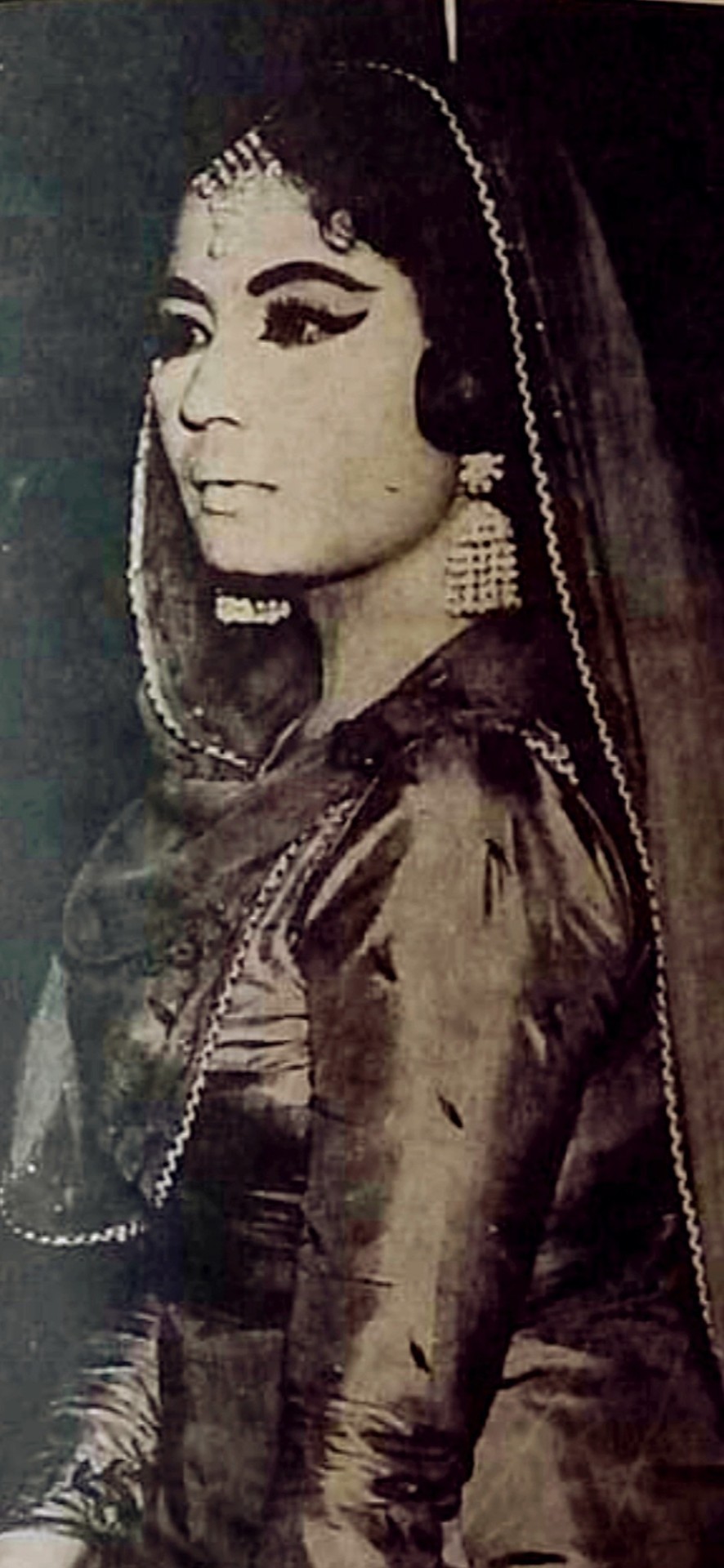
PHOTO OF ACTRESS MEENA KUMARI IN PUBLISHED IN URDU MAGAZINE 60'S
1 note
·
View note
Text
Hello Everyone,
Assalamoalaikum ❣️
As you all know today is 9th November, that is, today is celebrated as Urdu Day. On this day in 1877, the famous poet Dr. Allama Iqbal was born in Sialkot Pakistan, and today Urdu Day is celebrated to mark his birth anniversary. His father's name was Sheikh Noor Muhammed and his mother's name was Imam Bibi. The financial condition of the house was not that good, it just used to pass. His father was not very educated, his job was that of a tailor, he used to stitch clothes of people and run the house, but yes he was not educated but he was a very religious and social person.
Do you know, Urdu is an Indo-Aryan language that comes from the Indo-European language family. It is the mother tongue of about 70 million people worldwide and more than 100 million people use it as a second language in India - Pakistan. Urdu is a language that reaches the soul. It is a language that fills life in ghazals. This is the reason why songs, poetry and nazms written in Urdu reach our hearts.
You must have heard that a proverb is very famous in India. Regarding languages, it is said that if Hindi is our mother then Urdu is our aunt. This clearly shows how much importance is given to languages in India. Also, how is the importance of Urdu in it, it also shows.
The birth of Urdu in India is considered to be from the period of 12th century. At that time the popular name of this language was not Urdu but Hindavi. When the number of its speakers increased rapidly and it started being spoken in different states, then its different names also started appearing, such as- Zaban-e-Hind, Rekhta, Zaban-e-Dehli, Hindi, Gujri, Deccani, Zaban-e-Urdu-e-Mullah and Urdu.
I believe that Dr. Allama Iqbal through his poetry worked to advance the Urdu language to a great extent. He used Urdu and Persian languages extensively in his poetry. His poetry was not easy for everyone to understand. Because he did not do common poetry, in which those who read and listened could see the words of the lover, he was a revolutionary poet, his poetry used to be filled with the philosophy of life. There used to be many mines in every single harf.
There is no doubt that Dr. Allama Iqbal was a true patriot, he wrote many such ghazals in which the flame of his patriotism can be felt. When he wrote "Tarana-e-Hind" in 1904, that ghazal was on the tongue of a revolutionary. Even today that Ghazal is repeated in every corner of India.
Sare Jahan Ae Achcha Hindustan Hamara
Hum Bulbule Hain Iski Ye Gulistaan Hamara
Mazhab Nahi Sikhata Aapas Mein Bair Rakhna
Hindi Hain Hum Watan Hai Hindustan Hamara...
Well, in today's era, all of you must have also realised that somewhere in our country, in some way or the other, efforts are being made to eradicate Urdu, and this is also true that without Urdu, All Stories, Ghazal, Nazm, Song and Poetry are all incomplete. Without Urdu, they cannot accomplish all these things, but still do not know why some people are lying on erasing Urdu. So I request special Muslim brothers and sisters to try to keep Urdu alive in their society in their homes and get their children educated in Urdu and take Urdu newspapers or magazines in their homes. Today we all ourselves are getting away from Urdu as if it will no longer exist in the future.
What a great poet has written a lot on Urdu;
"Urdu" Jise Kehte Hain Tahzeeb Ka Chashma Hai..
Wo Shakhs Mohazzab Hai Jisko Ye Zuban Aayi !!
Thank You !! 😊
S S Ashraf
Director, Bookstock

3 notes
·
View notes
Text
Title: Confessions of a Reluctant Newspaper Reader: A Hilarious Journey from Resistance to Addiction
In today's digital age, where smartphones and social media reign supreme, it's almost comical to reminisce about the days when newspapers were the kings of the household. Growing up, while everyone in my family was engrossed in their preferred newspapers, I found myself swimming against the current, trying to avoid the folds and confusion of the printed page.
Picture this: a typical Sunday in the Ansari household, a scene straight out of a sitcom. My grandmother, engrossed in her Urdu newspaper, while her brother, residing next door, would saunter into our living room with his English counterpart. Meanwhile, my father would make his way downstairs with his own newspaper in tow, occasionally joined by his younger brother and our beloved grandfather. It was never just about reading; it was a full-blown group spectacle.
My grandfather, the patriarch of colorful commentary, would kickstart the session with his hilarious remarks or fiery political rants. His words were like sparks igniting a wildfire of responses from the rest of the clan. From politics to business, and even the obituaries (yes, even those sparked debates), no topic was off-limits.
Amidst this cacophony of opinions, I, the black sheep of the family, stubbornly clung to my magazines, avoiding the dreaded "continued on page 7" trap of newspapers. While everyone else saw success as synonymous with newspaper reading, I saw it as a labyrinth of folds and confusion.
My father's younger brother, the sage of the family, once delivered the ultimate truth bomb: successful people are well-versed in current affairs, and if I didn't jump on the newspaper bandwagon, I'd forever be lacking in wisdom. And so, after years of resistance and countless lectures, I caved in.
But alas, the transition to digital news consumption hasn't been without its hiccups. As I find myself scrolling through news articles on my phone, I can't help but miss the smell of ink and the tactile pleasure of flipping through physical pages. Call me nostalgic, but there's just something about the real thing that can't be replicated on a screen.
So here I am, a self-proclaimed news reading freak, navigating the ever-changing landscape of media consumption. But amidst the chaos, I'll always hold onto the memories of those uproarious family gatherings, where newspapers were more than just a source of information—they were the glue that bound us together.
#NewspaperNostalgia #InkAndPaperForever #ReluctantReaderNoMore #FamilyNewspaperDrama #PrintVsDigital #HilariousConfessions
0 notes
Text
NASHEB-O-FARAAZ by Sushrut Pant

About the Author :
Sushrut Pant “Zarraa” is a marketer by profession and a poet by passion. He was born in Kanpur and grew up in Agra, Bhopal, Delhi and Mumbai. He graduated from Mumbai University followed by an MBA from IIM Ahmedabad. He has worked in several leading organisations over the last 25 years. During this time he has travelled around the world and lived in Nigeria, Vietnam, Singapore, United States and now back to his roots in India where he lives in Mumbai with his family. As a poet, Zarraa has been very active in online poetry circles with a growing patronage in Facebook and You Tube. He has been published in several magazines and collective anthologies. This is his first solo book publication.
About the Book :
“Nasheb-o-Faraaz” means “Ups and Downs”. This book is a selection of gazals and nazms penned by Sushrut Pant “Zarraa” written over the last 15 years in 5 countries. The script of this book is Devanagri and the language is Hindustani - a seamless fusion of Hindi and Urdu. “Zarra” has chosen for you 111 of his poems that convey a myriad of emotions, opinions and questions inspired by his ups and downs in life. He places this labour of love in your hands for your reading pleasure and feedback. You can contact Zarraa at [email protected] to give your invaluable opinion and also connect with him at facebook id “Zarraa’s Shayari”.
Shop Now on Amazon, Flipkart and BlueroseOne
0 notes
Text
Lala Lajpat Rai
Lala Lajpat Rai was a prominent Indian freedom fighter and a key figure in the Indian independence movement. Here are a few key factors approximately him:
Early Life:
Birth: Lala Lajpat Rai was born on January 28, 1865, in Dhudike, Punjab, British India.
Munshi Radha Krishan Agrawal, a Persian and Urdu teacher, and Gulab Devi, a pious lady, were the parents of Lala Lajpat Rai. After obtaining his law degree, he commenced his legal practice in Hisar, Haryana.
In Hinduism, Rai believed in the potential of Hindu principles to foster nationalism and envisaged a genuinely secular nation founded on these ideals. Concurrently, he engaged with the Hindu Mahasabha.
Education:
He studied law at Government College in Lahore, where he came in contact with fellow freedom fighters like Lala Hans Raj and Pandit Guru Dutt.
Role in the Independence Movement:
Lajpat Rai played a crucial role in the Indian independence movement and was a part of the Lal Bal Pal trio, along with Bal Gangadhar Tilak and Bipin Chandra Pal.
He was associated with various socio-political movements and organizations, including the Arya Samaj.
Leadership in Punjab:
Lala Lajpat Rai was an ardent advocate for militant anti-British nationalism within the Indian National Congress, simultaneously being a prominent leader in the Hindu supremacy movement.
Lala Lajpat Rai, famously known as the Lion of Punjab, was a stalwart in the Indian independence movement. He earned the moniker Punjab Kesari, symbolizing his fearless spirit
Lajpat Rai also served as the President of the All India Trade Union Congress.
In 1886, Rai founded the Hisar branch of the Indian National Congress and later shifted to Lahore in 1892 to practice law at the Lahore High Court. He actively contributed to various magazines and newspapers and initiated political agitation against the government.
Deported to Mandalay in 1907 without trial, he was released due to insufficient evidence. In 1914, he abandoned law practice to devote himself to India’s liberation from foreign rule.
Living in the USA from 1917 to 1920, Rai founded the Indian Home Rule League of America to garner moral support for India’s independence struggle.
He petitioned the US Senate, depicting the dire state of Indian administration under British rule. Upon returning to India, he joined various INC movements.
Protests Against Simon Commission and Death
Lala Lajpat Rai led a protest against the Simon Commission in 1928. During the protest, he sustained injuries inflicted by the police baton charge. He later succumbed to these injuries
His death led to widespread outrage and contributed to the anti-British sentiments during the independence movement.
During the Simon Commission’s visit to Lahore on October 30, 1928, Rai led a silent march protesting its exclusion of Indian members. The Superintendent of Police, James Scott, subjected him to a brutal lathi charge. Despite the assault, Rai declared to the crowd, “I declare that the blows struck at me today will be the last nails in the coffin of British rule in India.” Martyr’s Day is celebrated on November 17 in his honor in India.
Legacy:
Lajpat Nagar, a prominent locality in Delhi, is named after him.
His contribution to India’s freedom struggle is remembered and honored nationwide.
Lala Lajpat Rai’s commitment to the cause of Indian independence and his sacrifices for the nation have secured him a revered place in India’s history.
Lajpat Rai’s notable works include:
The Story of My Deportation
The United States of America: A Hindu’s Impression
Arya Samaj
England’s Debt to India
Unhappy India
birthday life Indian freedom fighterlajpat Rai's notable works include Lajpat raileadership in punjablegacyprotests against the Simon Commission and death in the independence movement
#Early Life:#Birth: Lala Lajpat Rai was born on January 28#1865#in Dhudike#Punjab#British India.#Munshi Radha Krishan Agrawal#a Persian and Urdu teacher#and Gulab Devi#a pious lady#Education:
0 notes
Text
Inpage Download for Free
User Rating:
Developer: InPage Team
Genre: Desktop publishing software
Version: 3.61
InPage Free Download
Release Date1994DeveloperInPage TeamPublisherInPage TeamGenreDesktop publishing softwareSystemWindows PCVersion3.61InPage SoftwareDownload
InPage – World’s most popular Urdu Software
InPage™ Urdu is the industry standard tool for page-making of Newspapers, Magazines, and books in…
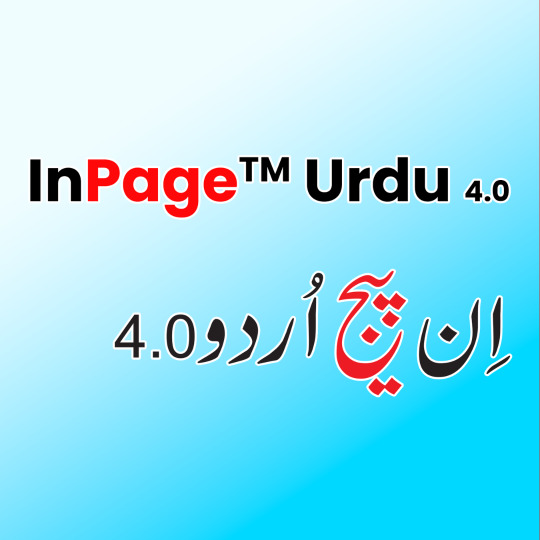
View On WordPress
0 notes